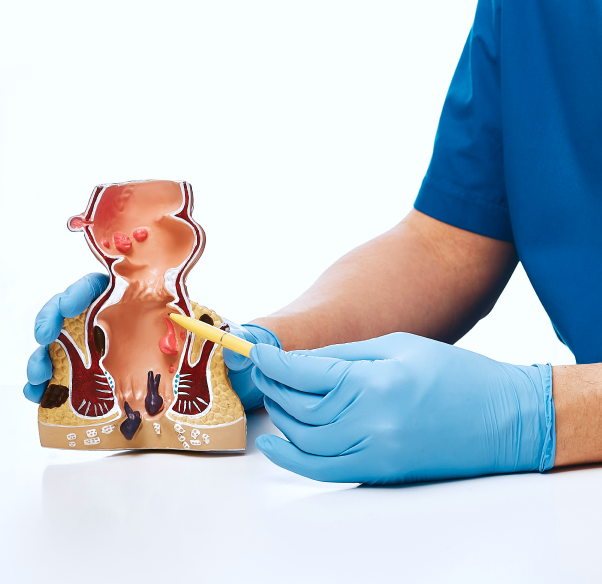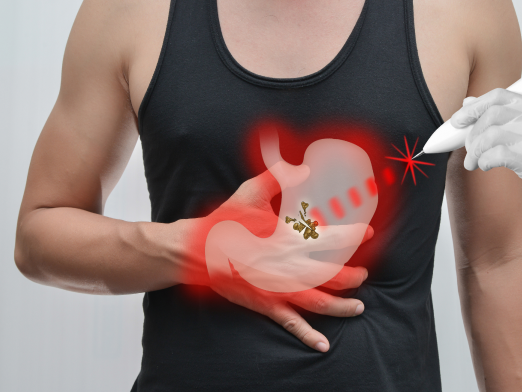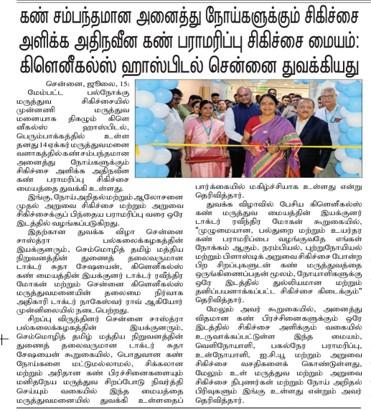Understanding Bowel Obstruction: Causes, Symptoms, and Treatment
Symptoms of Bowel Obstruction
Bowel obstruction manifests through a range of distressing symptoms, which can vary depending on the location and severity of the blockage. The common symptoms include:
1. Nausea
Nausea is often an early sign of bowel obstruction and can be persistent and severe.
2. Vomiting
Vomiting is a classic symptom of small bowel obstruction. In cases where the intestinal wall ruptures, high-grade fever may also occur.
3. Diarrhea
Diarrhea can develop as a result of the body's attempt to expel the blockage or due to the accumulation of fluids in the bowel.
4. Constipation
On the flip side, constipation may also be experienced, especially in cases of large bowel obstruction.
5. Severe Bloating
Bowel obstruction can lead to severe abdominal bloating, causing discomfort and pain.
6. Loss of Appetite
The discomfort and nausea associated with bowel obstruction often result in a loss of appetite.
7. Abdominal Cramps
Abdominal cramps, sometimes severe, are a common symptom of bowel obstruction.
It's important to note that large bowel obstruction is a medical emergency that requires immediate intervention.
Tips to Reduce the Risk of Bowel Obstruction
While not all bowel obstructions can be prevented, there are steps you can take to reduce the risk:
1. Drinking More Water
Adequate hydration is essential for the smooth movement of bowel contents.
2. Increasing Fiber in the Diet
Fiber-rich foods help promote regular bowel movements and prevent constipation.
3. Consuming Fresh Vegetables and Fruits
Including a variety of fresh produce in your diet ensures a balanced intake of nutrients.
4. Drinking Water and Honey on an Empty Stomach
This simple practice can help maintain bowel regularity.
5. Drinking Fresh Orange Juice
The natural acidity and fiber in fresh orange juice can aid in digestion.
When to Seek Medical Attention
Bowel obstruction is a medical emergency, and you should consult a healthcare professional if you experience any of the following symptoms:
- Abdominal bloating
- Severe constipation
- Loss of appetite
- Recent abdominal surgery
Prompt medical attention is crucial in addressing bowel obstruction and preventing its complications.
Common Causes of Bowel Obstruction
Understanding the underlying causes of bowel obstruction is essential for both prevention and early diagnosis. Some of the most common causes include:
1. Herniation of Small Intestine
Herniation, often due to weakness, can lead to a blockage in the small intestine.
2. Adhesions
Adhesions can form after abdominal surgery, causing the intestines to become tangled and obstructed.
3. Inflammatory Diseases
Conditions such as Crohn's disease can result in inflammation and narrowing of the intestinal passages.
4. Severe Constipation
Untreated constipation can cause a hardened mass of stool, leading to bowel obstruction.
5. Colon Cancer
Tumors in the colon can obstruct the passage of digested materials.
6. Gallstones, Volvulus, Intussusception, Paralytic Ileus
These conditions can also lead to bowel obstruction and require prompt medical attention.
Complications of Bowel Obstruction
When left untreated, bowel obstruction can result in severe complications, including:
1. Tissue Death
Bowel obstruction can compromise blood supply, leading to the death of intestinal tissue and potential infections.
2. Infection
Peritonitis, an infection of the abdominal cavity, is a life-threatening condition that demands immediate medical or surgical intervention.
Diagnosis of Bowel Obstruction
Accurate diagnosis is crucial for effective treatment. Medical professionals employ various methods to diagnose bowel obstruction, including:
1. Physical Examination
Doctors take a detailed medical history, assess symptoms, and conduct a physical examination. Abdominal tenderness and swelling are indicative of an obstruction.
2. X-ray
X-rays can help identify small intestinal obstructions, aiding in confirming the diagnosis.
3. Ultrasound
Ultrasound imaging is particularly useful for diagnosing bowel obstruction in young patients, as it provides a clear view of the intestine.
4. Computer Tomography (CT) Scan
CT scans offer cross-sectional images, allowing for the accurate visualization of intestinal obstructions.
5. Barium Enema
This enhanced imaging technique is valuable in diagnosing potential causes of obstruction.
Treatment Options
The management of bowel obstruction typically involves both conservative measures and, in severe cases, surgery. Here are the key treatment options:
Medications
Medications can provide symptomatic relief but do not address the underlying obstruction. They may include:
- Pain relievers to alleviate discomfort.
- Antibiotics to treat any associated infections.
- Anti-emetics to reduce vomiting.
Surgery
In cases where medication and conservative treatments prove ineffective, surgery is the primary option. Surgical procedures aim to remove the blockage and restore normal intestinal function. Intravenous fluids are often administered before surgery to combat dehydration and prevent shock.
In instances where a portion of the intestine has died, the surgeon will remove the affected tissue and reconnect the healthy ends. This procedure is crucial in preventing further complications.
In conclusion, bowel obstruction is a serious medical condition that demands immediate attention. Recognizing its symptoms and understanding its causes and treatment options is essential for maintaining good digestive health. If you or someone you know experiences the symptoms of bowel obstruction, seek medical help without delay to ensure a timely and effective resolution of the issue.
Remember, your health is invaluable, and early intervention is key to preventing severe complications. Stay informed and take proactive steps to promote a healthy digestive system.
Bowel Obstruction:
Bowel obstruction, often referred to as intestinal obstruction, is a serious medical condition that can cause severe discomfort and potentially life-threatening complications. In this comprehensive article, we will delve into the intricacies of bowel obstruction, exploring its causes, symptoms, diagnosis, and available treatments. We aim to provide you with a thorough understanding of this condition, ensuring that you are well-informed about its complexities.
What is Bowel Obstruction?
The human digestive system is a marvel of complexity, with the intestines playing a critical role in the absorption of nutrients and elimination of waste. The intestines, collectively spanning an astounding 25 feet, are responsible for moving digested food, fluids, and waste products through the body. However, in the case of bowel obstruction, this intricate process is hindered.
Bowel obstruction, simply put, is the blockage of either the small or large intestines. When this blockage occurs, it impedes the normal flow of materials through the digestive tract. All the contents, including food, gastric acids, fluids, and gas, accumulate behind the site of the blockage. This accumulation can lead to a rupture, resulting in the leakage of toxic stomach contents into the abdominal cavity.

























